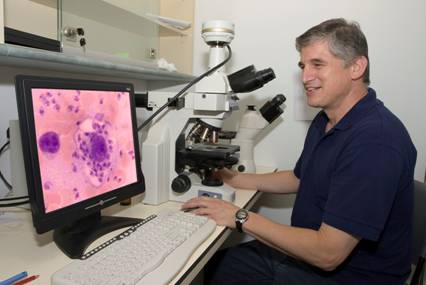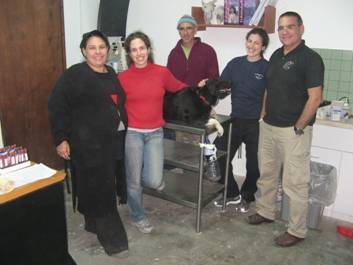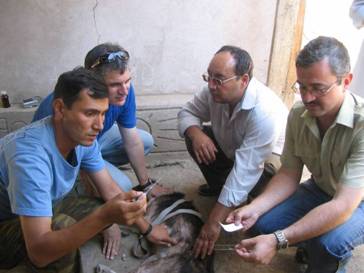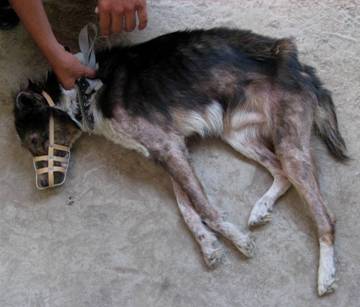


Non-Human reservoir hostsThe involvement of animals in the epidemiology of human visceral leishmaniasis in Ethiopia and in neighboring Sudan has been previously suspected. Both Leishmania infantum and L. donovani have been reported from East Africa. Domestic dogs, the major peridomestic reservoir of L. infantum in the Mediterranean basin and South America, have been found infected with both species. Wild animal species such as several species of rodents, mongooses (Herpeistes ichneumon), the genets (Genetta genetta) have also been found infected. We will determine the role of domestic and wild animals as drivers of transmission in endemic foci and their possible importance in maintaining transmission in between outbreaks and in uninhabited areas. Dogs will sampled in villages with active transmission of leishmaniasis. Wild animals will be trapped, examined for any clinical signs of disease, and sampled for Leishmania infection. The infection status of animals will be evaluated using PCR, serology and parasite culture. Personnel
Gad Baneth’s group is at The Koret School of Veterinary Medicine in the Hebrew University’s Faculty of Agriculture . He is also a member of the Kuvin Center for the Study of Tropical and Infectious Diseases
|

Site by: eleanor.co.il | Last updated: August 31, 2011 | This site is graciously hosted by The Hebrew University of Jerusalem









